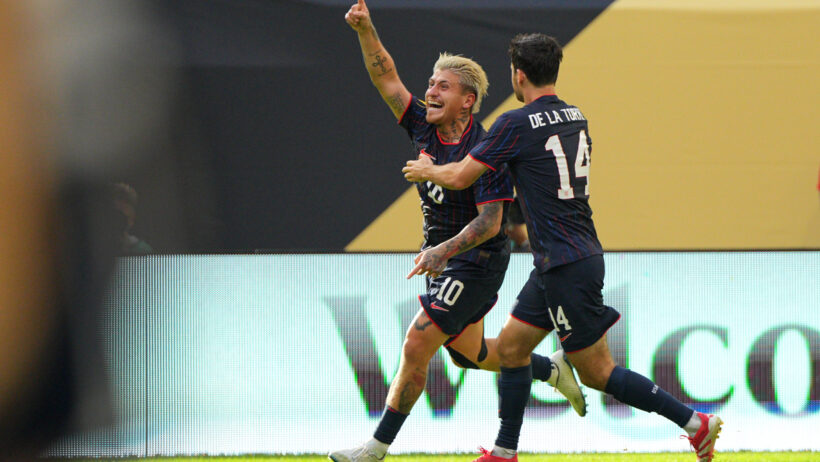Final Four Trends for Your March Madness Bets
By Sascha Paruk
Updated:
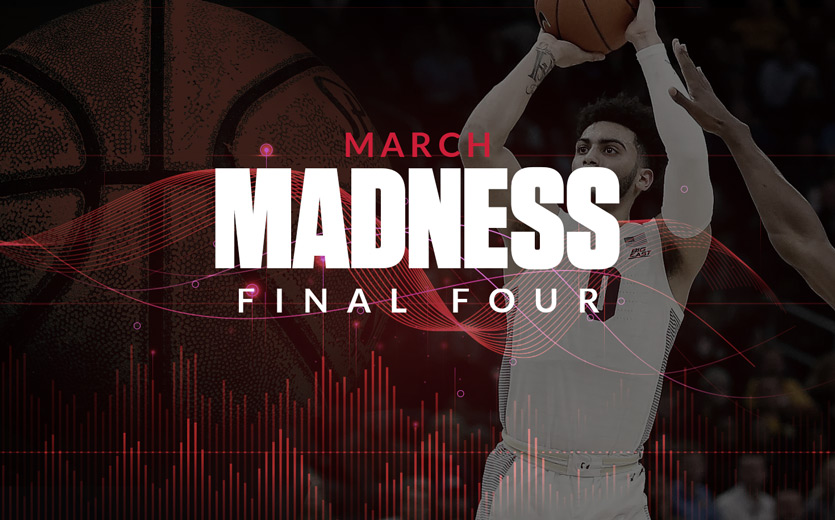
- The Final Four has seen some pretty strong trends emerge, including the ten detailed below.
- Just how difficult is to win your first championship?
- What’s a bigger impediment to winning a March Madness title, a bad offense or a bad defense?
The Final Four is the crux of any good bracket. Whether you’re setting up your perfect, gonna-win-it-all dream sheet or just betting the March Madness Final Four, there are some trends to look out for.
- BETMGM SPORTSBOOK
USE CODE SBD1500 & GET $1,500 BACK IN BONUS BETS
- BET365 SPORTSBOOK
BET $5 & GET $150 IN BONUS BETS WITH CODE DIME365
- FANATICS SPORTSBOOK
BET & GET UP TO $1,000 IN BONUS BETS!
- DRAFTKINGS SPORTSBOOK
BET $5 & GET $150 IN BONUS BETS INSTANTLY!
- FANDUEL SPORTSBOOK
BET $5 & GET $150 IF YOUR BET WINS
- CAESARS SPORTSBOOK
USE CODE SBD2DYW & BET $1 TO DOUBLE THE WINNINGS ON YOUR FIRST 10 BETS!
Must be 21+. GAMBLING PROBLEM? Call 1-800-GAMBLER (CO, IL, KS, KY, MD, MI, NC, NJ, OH, PA, TN, VA, VT, WV, WY); (800) 327-5050 or gamblinghelplinema.org (MA); (877) 8-HOPENY (NY); 1-800-NEXT-STEP (AZ); (888) 789-7777 (CT); 1-800-BETS-OFF (IA); 1-800-9-WITH-IT (IN); mdgamblinghelp.org (MD); morethanagame.nc.gov (NC); 1800gambler.net (WV)
NCAA March Madness Final Four Trends
It’s important to remember that the trends below are historical. Some are weird, some are wonderful, some are based on reason, some are pure coincidence. It’s incumbent on every bettor to think critically before they wager. Use resources like our Final Four odds tracker to do your own research.
There’s a saying that past performance is the best indicator of future success, but due to factors like roster turnover and coaching changes, past performance in college basketball can be a red herring at times.
With that out of the way, here are the most-notable Final Four betting trends from the past 36 years. Remember there was no NCAA Tournament in 2020 due to COVID-19.
1. 23 of the last 25 NCAA champs have come from the Eastern time zone
There’s something to be said for the travel schedule favoring teams furthest east, and also for UNC, Duke, Kentucky, Villanova, and Connecticut all being in the same time zone. It’s not a huge diversity of teams that are winning the national title.
The teams that buck the trend are Kansas (2008) and Baylor (2021).
2. (Don’t) throw the rankings out
A big sports-media thing is that, “it’s the Final Four, so anything can happen.” Where we’re going you don’t need tournament seeds, bucko.
Except they do matter, inasmuch as they correlate with success; 25 of the 68 teams to make the Final Four from 2008-2024 were #1 seeds, and 17 of them made the championship game. Twelve of those won the title. That’s well above what you’d expect from chance.
Twenty-one of the teams to make the Final Four since 2008 were #5 or lower, and just six of them made the championship game. Only one (2014 UConn, which was #7 in the East), won the title. Seven of those 13 teams were #8 or lower, of which just three progressed and none won it all.
It’s not a big enough sample size to draw any iron-clad conclusions, but don’t go thinking that, past a certain point, tournament seeds stop mattering. Higher-ranked teams win at a higher rate than you’d expect from chance.
3. The #1 seeds beat the spread, slightly
From 2005 to 2021, #1 seeds making the Final Four went 264-18 against the spread, a slightly profitable trend that’s picked up a bit in the past few years.
4. The favorites have been on a tear in the semi-final
In the last 10 tournaments, just three underdogs (2015 Wisconsin, 2019 Texas Tech, 2022 North Carolina) have won a semi-final game.
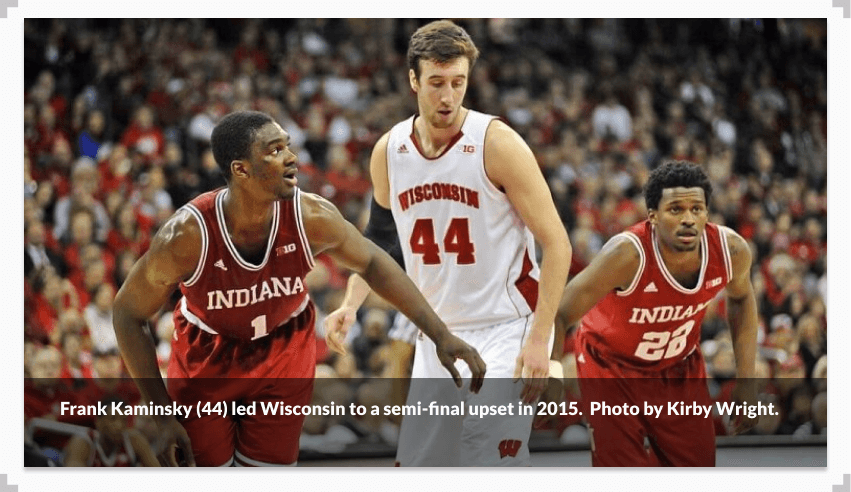
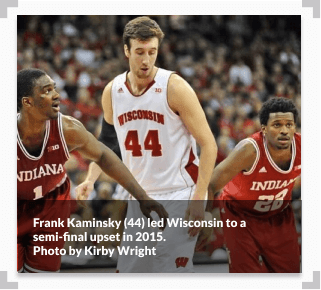
5. Favorites have won four of the past five championship games
Underdogs were on a bit of a run in the championship game until 2017. In 2014, UConn upset Kentucky. In 2015, Duke topped Wisconsin as a short underdog. And in 2016, UNC was upset at the buzzer by Villanova.
But UNC’s win over Gonzaga in 2017 was followed by Villanova winning as a big favorite in 2018, and UVA beating Texas Tech as a two-point favorite in 2019 (albeit in overtime). Baylor stopped that trend with its 86-70 destruction of Gonzaga in 2021. But in 2022, Kansas beat UNC (72-69) as 4.5-point chalk, in 2023, UConn obliterated San Diego State (76-59) as 7.5-point favorites, and in 2024, UConn repeated with a decisive 75-60 win over Purdue.
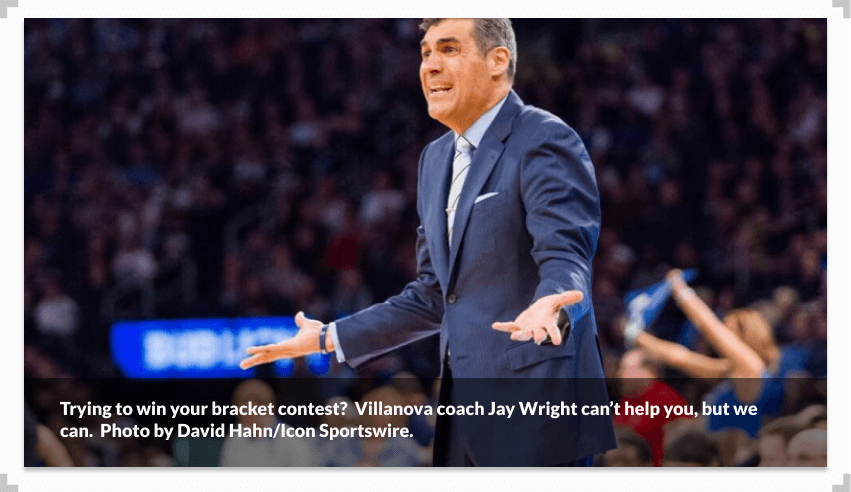
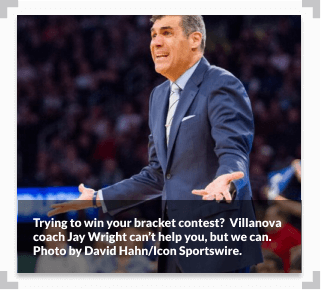
6. Winners win, champions cover
This is an old saw that turns out to be surprisingly accurate. We’ve assembled 15 years of Final Four results (from the 2008 tournament to the 2024 tournament) with each team’s ATS record for that season. Before you get mad: you’ll notice that we’ve let Louisville’s championship stand, because sportsbooks sure did.
(Championship teams are in bold. Runners-up are in italics.)
A few things stand out: the vast majority of Final Four teams have a winning record against the spread. Just 10 of the 56 teams listed here finished the year with an ATS record below 50%, three of which came in 2010. Of those, two won championships.
Nineteen teams in this group finished with ATS records over 60%. Of those 19, 11 won championships, three more were finalists, and only five missed the championship game. That’s more than you’d expect from chance, a lot more.
7. Winning the first one is tough
Since 2000, 16 teams have made the championship game and had the opportunity to win their first title. Of those, just five have been successful. Of those, 2003 Syracuse was on its third try, 2006 Florida and 2021 Baylor were on their second, and only 2002 Maryland and 2019 Virginia were able to win on their first try.
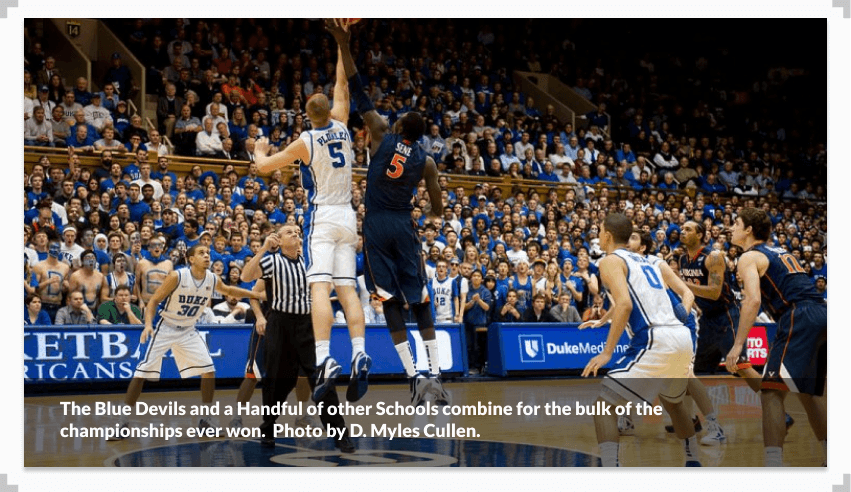
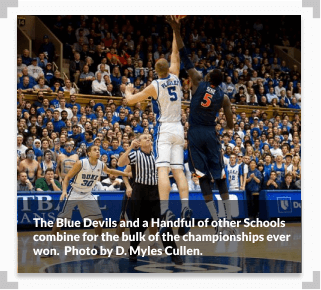
8. First-time coaches cover
From 2005 to 2024, 22 coaches reached their first Final Four. Their teams went 13-13 straight up, which is impressive considering the circumstances, and 14-10-1 against the spread, which is deeply impressive any way you look at it.
9. Good offenses win championships
In the KenPom era (since 2002), 14 national champions have ranked in the top three in offensive efficiency, nationally. Only three have ranked outside the top ten, and only one has fallen outside the top 20 (UConn, 2014).
[Since 2002] 12 national champions have ranked in the top three in offensive efficiency.
In 2018, we flagged Virginia and Cincinnati as high seeds that ranked well outside the top 20. The Bearcats lost in the second round, and we think you remember what happened to Virginia when they faced UMBC.
When we look back at the year in sports in 2018, UMBC’s upset over No. 1 Virginia sticks out as one of the most surprising moments (by @thedangreene) https://t.co/0wDwshy3xa
— SI College Hoops (@si_ncaabb) November 27, 2018
What many casual fans won’t remember is that, when UVA came back to win the title in 2019, their slow, methodical offense actually ranked second in all of Division I in efficiency.
10. Bad defenses lose championships
As important as a great offense is, a respectable defense may be even more crucial. Since 2002, no team has won the national championship with a defense that ranked lower than 18th in the nation in efficiency (2009 Tar Heels).
Increase Your Winning Percentage Today!
Unfortunately, there’s a lot more to making money betting on March Madness than just Final Four trends. If you really want to beat the odds and pick a winner on your bracket, we’ve closely examined 7 perennial attributes of March Madness winners.
If you’re feeling competent and up to speed with your March Madness betting knowledge, check out the rest of our strategy guides.

Managing Editor
Sascha has been working in the sports-betting industry since 2014, and quickly paired his strong writing skills with a burgeoning knowledge of probability and statistics. He holds an undergraduate degree in linguistics and a Juris Doctor from the University of British Columbia.



